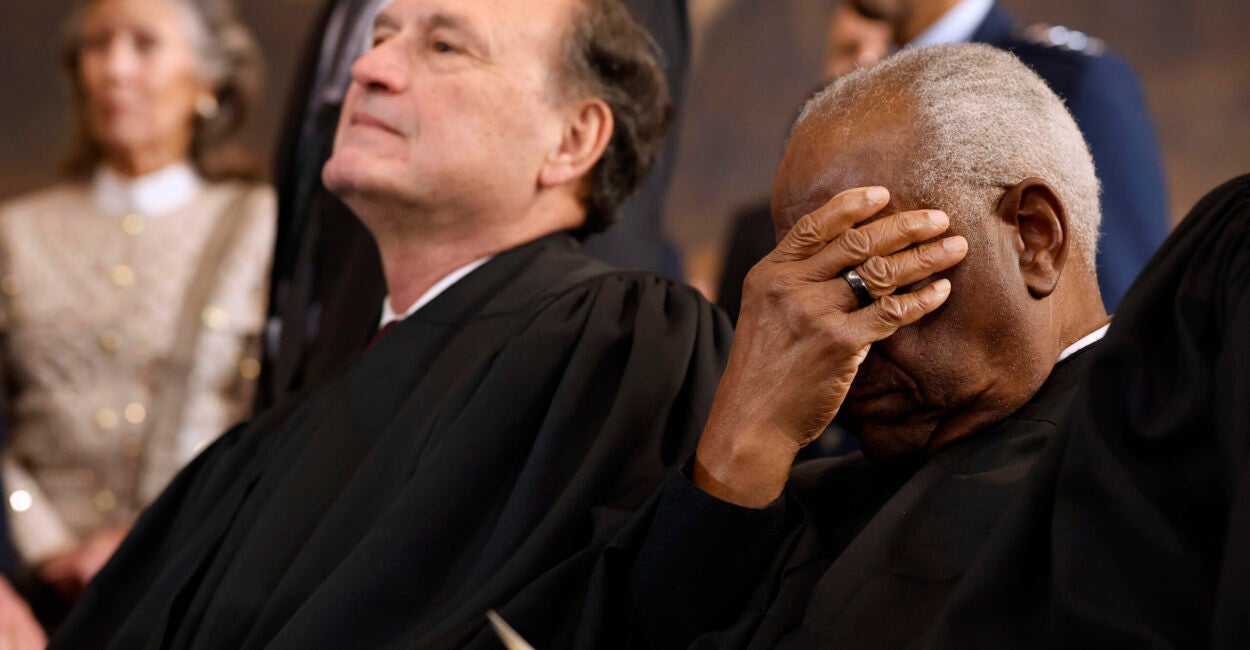


On Monday, the Supreme Court justices took their seats for the first oral arguments of the October 2025 term—marking the start of what many have suggested is shaping up to be yet another controversial season at the court.
The Supreme Court has already agreed to hear over 40 cases—and its fall schedule has the justices hearing 19 arguments, including three in consolidated cases.
With so much coming up, here are some cases to keep an eye on.
Chiles v. Salazar is a case brought by Colorado counselor Kaley Chiles in response to a Colorado law barring counselors from encouraging minors to embrace a gender identity consistent with their biological sex.
Chiles, a Christian, says the law violates her right to free speech because it bans her from encouraging patients to align their gender identity with their biological sex—even though it allows her to encourage patients to embrace a gender identity different from their sex. She says that imposes a content-based restriction on speech, violating the First Amendment.
But Colorado disagrees: It says that when Chiles counsels clients, she isn’t engaging in speech, but in professional conduct—which would mean the state’s law is not unconstitutional.
A federal appeals court ruled in Colorado’s favor, leading Chiles to appeal to the Supreme Court, which is set to hear her case Tuesday.
This case concerns a pregnancy center that alleges New Jersey targeted it for investigation because of its pro-life views.
New Jersey filed a subpoena that would have required the faith-based pregnancy center to turn over the names of its donors—so the pregnancy center challenged the subpoena in state court, arguing New Jersey had violated the Constitution by discriminating against it for its beliefs.
The state court allowed the subpoena but declined to address whether New Jersey had violated the Constitution, so the pregnancy center appealed to federal court.
But the federal court refused to rule, saying it couldn’t address the constitutional issues until they had been considered by the state court.
Now, the Supreme Court will decide whether the federal court was right in its refusal.
Little v. Hecox and West Virginia v. B.P.J. are two separate challenges from “transgender” individuals seeking to compete in opposite-gender sports.
In Little v. Hecox, Lindsay Hecox, a man identifying as a woman, says an Idaho law banning “transgender women” from competing in women’s sports violates the Constitution’s equal protection clause by discriminating against transgender individuals.
In West Virginia v. B.P.J., a parent sued the state of West Virginia on behalf of her child, a male identifying as female, arguing that a state law limiting women’s sports to “biological females” violates both Title IX and the equal protection clause.
This case concerns a lawsuit filed by the NRSC and then-Sen. JD Vance, who argue a federal law limiting certain campaign spending by political parties violates the First Amendment.
Notably, the Supreme Court previously upheld those limits on parties’ spending in a 2001 case. Since then, though, it’s struck down several other laws limiting campaign spending—creating what the 6th Circuit Court of Appeals called a “tension.”
This case involves a years-long redistricting saga that started when Louisiana redrew its six congressional seats after the 2020 census—ultimately creating one majority-black district. The NAACP and others sued, saying that under the Voting Rights Act, the state had to create at least two such districts.
A federal judge agreed, so Louisiana redrew its districts to create two majority-black districts—but then the state was sued again by voters who said Louisiana had violated the equal protection clause by drawing voting lines based on race.
The Supreme Court heard oral arguments on the case in March—but instead of deciding the case last term, it ordered reargument on whether the state’s intentional creation of a second black-majority district violated the Constitution.
Oral argument is set for Oct. 15.
Related posts:
- 4 Cases to Watch in Next Supreme Court Session
- Gender Ideology Loses in Court Yet Again
- Transgender Lawsuit Could Be Revived Over Change in the Law
